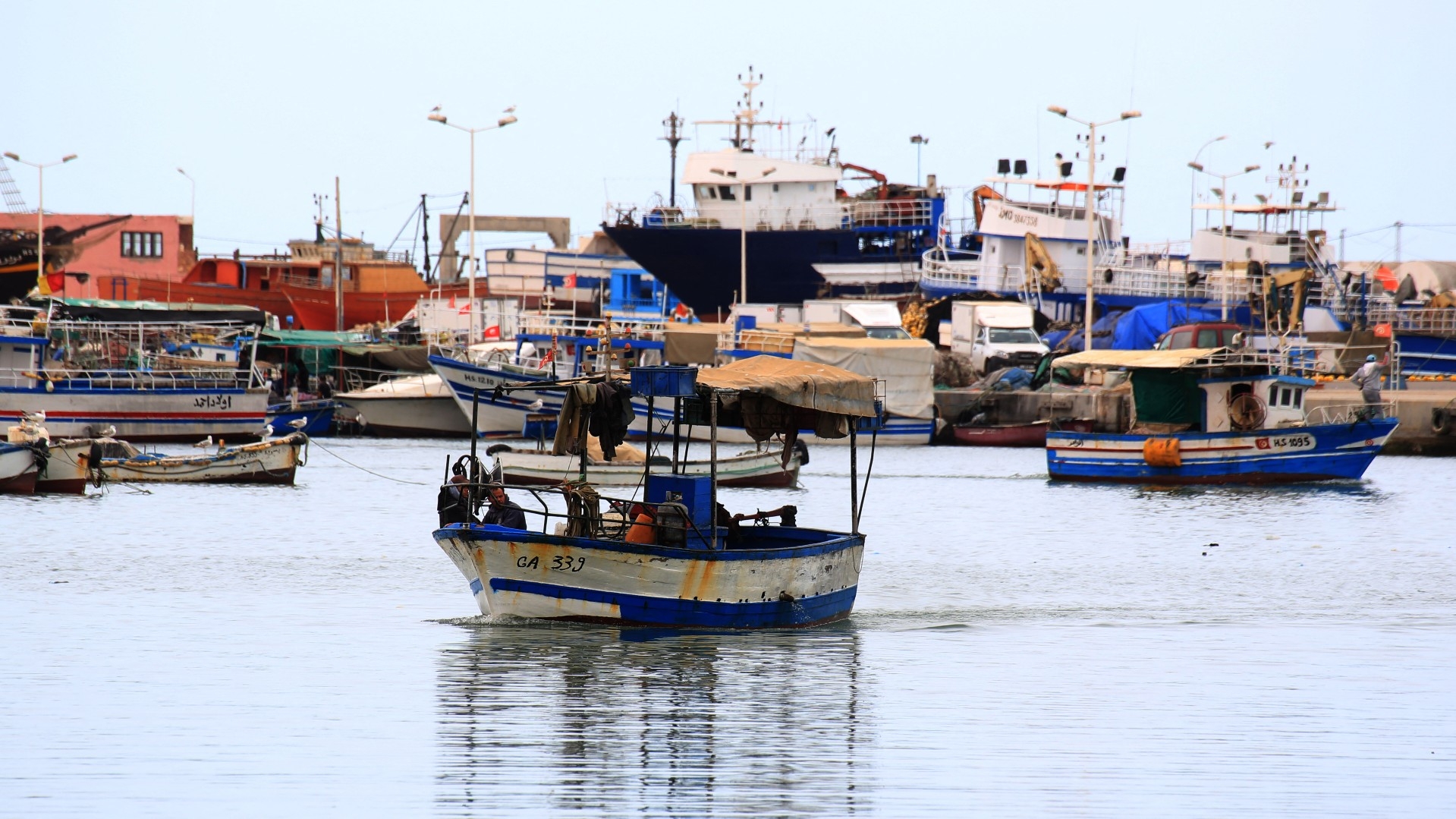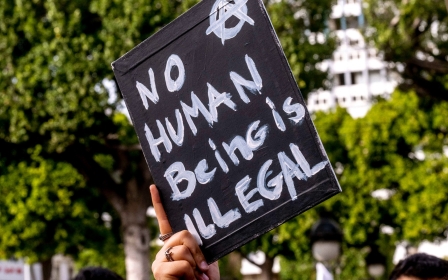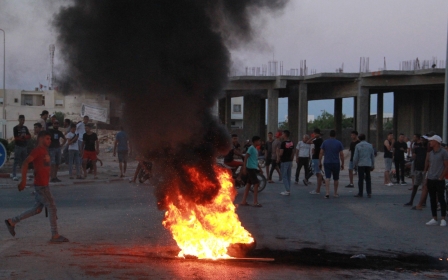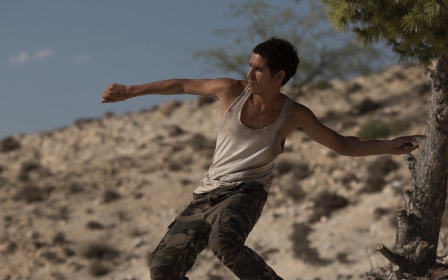At least 10 missing and one dead after boat sinks off Tunisia

At least 10 people were missing and one died after a boat attempting to reach Italy sank off the coast of Tunisia on Sunday, according to a judicial official.
Tunisia's coastguard rescued 11 people from the boat, which capsized off the coast of the southeastern town of Zarzis, Faouzi Masmoudi, a judge in the nearby city of Sfax, told Reuters.
The coastal city of Sfax and neighbouring towns have become a key access point to Europe for many people attempting to cross the Mediterranean.
The number of people dead or missing in boats sunk off the Tunisian coast has reached 608, the Tunisian Forum for Economic and Social Rights said on Saturday. The country's coastguard had foiled attempts to board boats by around 33,000 people, the rights group added.
In recent weeks, Tunisians in Sfax have held protests against the presence of refugees.
New MEE newsletter: Jerusalem Dispatch
Sign up to get the latest insights and analysis on Israel-Palestine, alongside Turkey Unpacked and other MEE newsletters
On Tuesday, a Tunisian man was stabbed to death during violent confrontations in the city, after which judicial officials said three Sub-Saharan Africans suspected of being responsible were arrested.
Tunisian security forces expelled hundreds of Black African people from Sfax to the border region with Libya earlier this week, according to rights groups.
Security forces beat the evictees, throwing away their food and smashing their phones, according to Lauren Seibert, a researcher into refugee and migrant rights at Human Rights Watch.
The EU has pledged financial support to Tunisia to help it deal with the migration crisis in the country.
President Kais Saied said last month that Tunisia would not be responsible for stopping irregular migration to Europe, and "refuses to be a place of transit or settlement for migrants".
In February, Saied linked people from Sub-Saharan Africa in the country to criminality, in comments that were widely denounced as racist.
"There has been a criminal plan since the beginning of the century to change the demographic structure of Tunisia, and there are parties that received large sums of money after 2011 for the settlement of illegal immigrants from Sub-Saharan Africa," he said.
Middle East Eye delivers independent and unrivalled coverage and analysis of the Middle East, North Africa and beyond. To learn more about republishing this content and the associated fees, please fill out this form. More about MEE can be found here.




